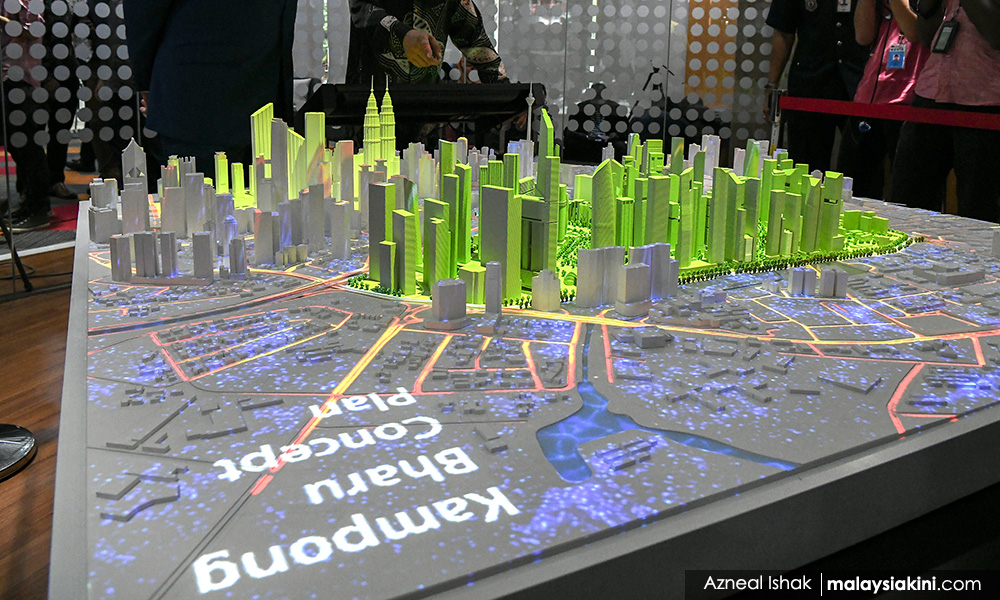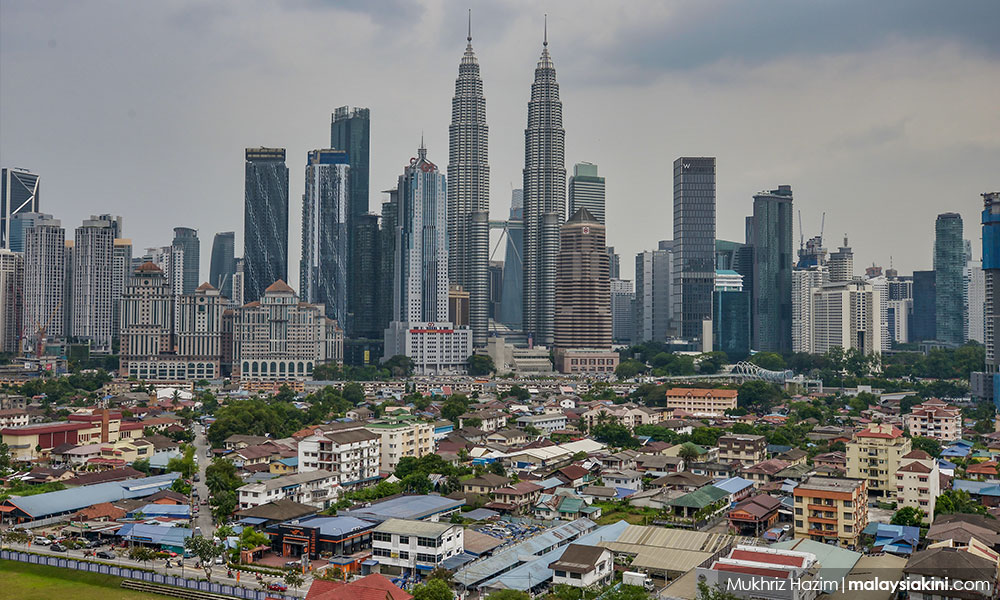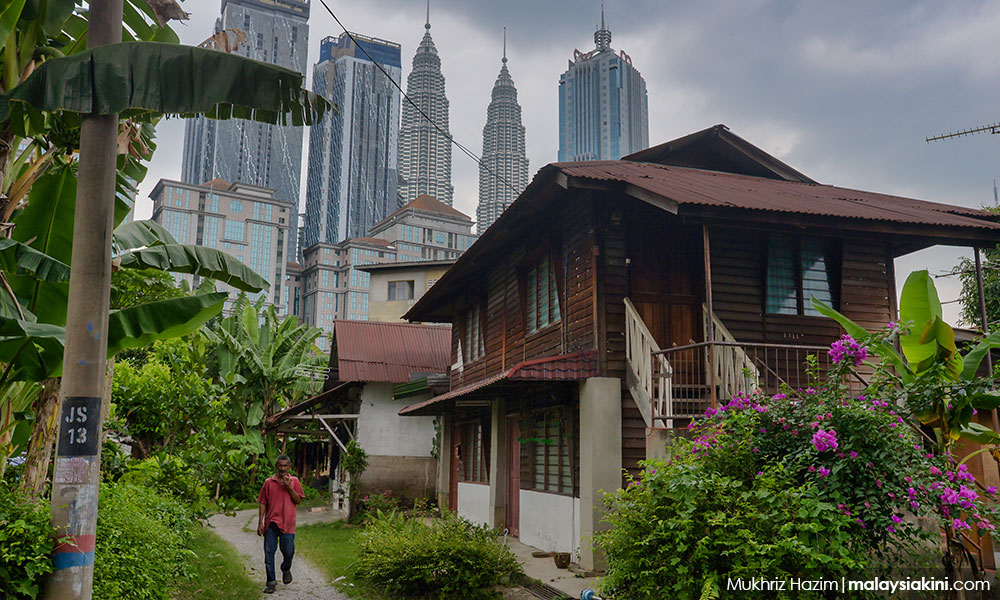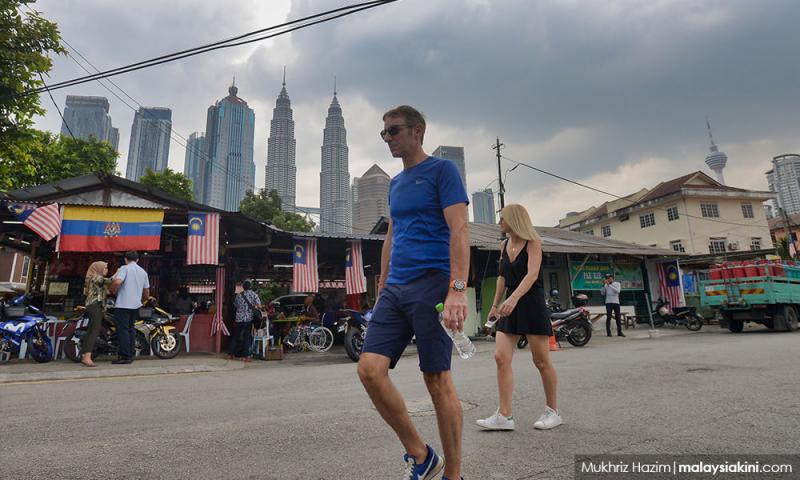Residents want to retain Kg Baru identity
The government's decision to increase its offer for land in Kampung Baru has elicited mixed reactions from residents.
Most of them don't want their land in the 122-year-old Malay settlement, strategically located in the city centre, to be sold to other parties.
These landowners and their beneficiaries are not resisting change but want any redevelopment for the area to take cognisance of their requirements.
Whether the government's proposed redevelopment of Kampung Baru will proceed without any snag will be known by the year-end, when the 3,000-odd landowners and beneficiaries provide their feedback to the government's offer.
On Oct 24, Federal Territories Minister Khalid Abdul Samad announced that the government is offering RM1,000 per sq ft as the final price for buying over the land in Kampung Baru.
At a town hall session with Kampung Baru residents on Sept 21, the minister had informed them that they would be offered RM850 per sq ft, but most of them felt the price was unreasonable considering the strategic location of Kampung Baru.
Let the residents decide
Legal expert Salleh Buang said any redevelopment plan should be finalised with the landowners themselves.
"They should decide whether they want to sell their lots or not. The forceful acquisition of their land (under the Land Acquisition Act 1960) should only be done as a last resort," Salleh said, adding that the government should act in the best interest of the residents of Kampung Baru and not "according to what suits the authorities best".

No matter how the redevelopment takes place, via the direct sale of the land lots to a developer or joint ventures between the landowners and the developer, it would entail a lengthy and complicated negotiation process, he said.
Kampung atmosphere
The 90.35-hectare Kampung Baru settlement comprises Kampung Periuk, Kampung Masjid, Kampung Atas A, Kampung Atas B, Kampung Hujung Pasir, Kampung Paya and Kampung Pindah.
According to the Kampung Baru Development Corporation's 2010 census, Kampung Baru had a total of 18,372 residents. Under the government's redevelopment plan, its population is estimated to grow to 160,000 by 2050.
Kampung Baru Landowners and Beneficiaries Association secretary Zainudin Ismail said the residents are not saying "no" to development but they do not fully agree with the redevelopment plan proposed by the government.
Zainudin said the association members, comprising more than 200 landowners and beneficiaries, want to retain the "kampung atmosphere" of their settlement that has existed for over a century.
"We have become accustomed to our surroundings. I myself come from Kampung Atas A and we have all been living as a community for so many years," he said, adding that they also did not agree with the government's offer of RM1,000 per sq ft for their land.
He said a more reasonable rate would be RM1,300 per sq ft, which was what some Kampung Baru residents, particularly those living in Kampung Atas A, were paid when their land was acquired for the construction of an MRT station.
Own redevelopment plan
According to Zainudin, Kampung Baru landowners and beneficiaries have their own development model for the settlement but cannot implement it due to financial constraints.
He said if the government sincerely wants to help to redevelop Kampung Baru, its RM10 billion allocation for the land acquisition should be given to the residents to enable them to develop their land themselves.

"Many residents who were born and raised here have become experts in the legal, architecture and engineering fields. And they are ready to work together to redevelop this area in accordance with the requirements of the people here," he said.
He said his association has, in fact, already drawn up its own redevelopment plan with the help of experts and that it would be presented to about 1,500 Kampung Baru landowners and beneficiaries during a gathering to be held soon.
Land Professionals Association of Malaysia president Ismail Omar agreed that the wakaf (endowment made by a Muslim to a religious, educational or charitable cause) concept was the best approach to take to develop Kampung Baru.
"Wakaf properties cannot be sold or bought and it will serve as the saviour of the Muslim community because the land can be developed without eroding the land ownership and heritage rights," he said.
Wakaf comes in various forms such as cash, real estate, investment, houses and others which can benefit the owner and other stakeholders, he explained.
Following the redevelopment of their land, rental income from the buildings concerned will benefit the owners and beneficiaries for several generations.

Ismail, who is also a senior lecturer in real estate management at Universiti Tun Hussein Onn Malaysia, said the redevelopment would also create job opportunities in the areas of property management and maintenance.
"Property assets have to be managed and maintained professionally. Otherwise, their market value and rentals will slide which will cause losses for the owners," he added.
Income for government
Developments using the wakaf approach will also benefit the government as it can collect land conversion fees, subdivision fees and other charges when the land development application is submitted to the relevant authorities.
Once the new buildings are completed, the government can collect quit rent, as well as fees for business licences and others.
Ismail also pointed out that Kampung Baru's redevelopment plan need not have to be all about residential properties being replaced with skyscrapers.
He said the settlement's traditional houses can be allocated funds to enable their owners to restore them to their former glory.
He said many cities worldwide as London have restored their historic buildings which remained unaffected by the overall development taking place there.
"Our restoration experts can retain the original identity of Kampung Baru as a centre of Malay culture, arts and heritage and let it be well-known all over the world," he said, adding that it would also attract more tourists to the area.
- Bernama
RM12.50 / month
- Unlimited access to award-winning journalism
- Comment and share your opinions on all our articles
- Gift interesting stories to your friends
- Tax deductable

 Bernama
Bernama